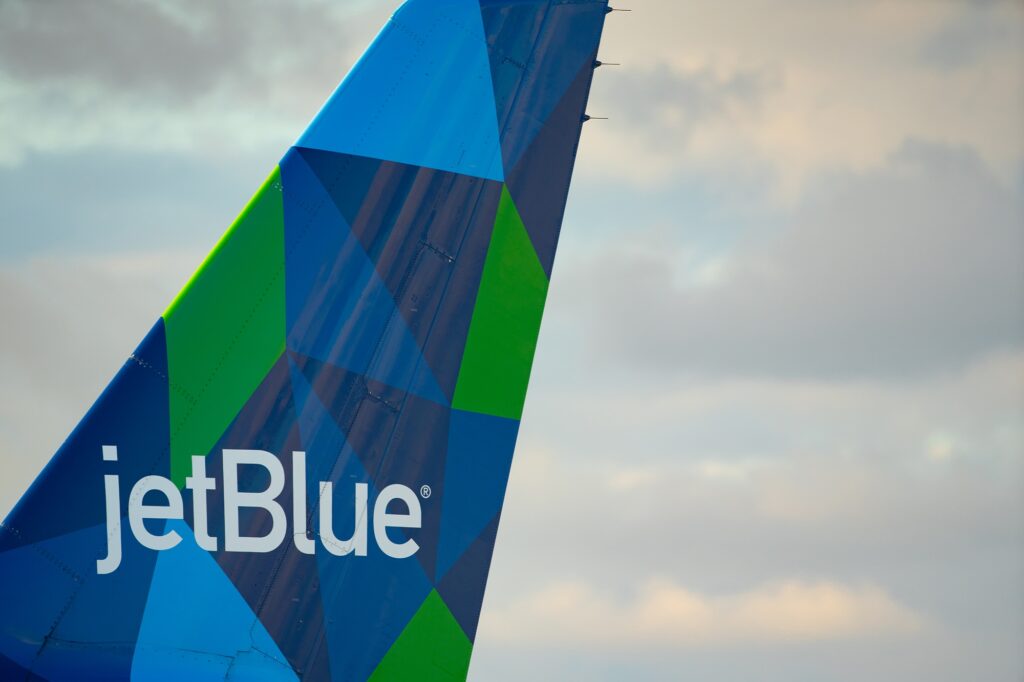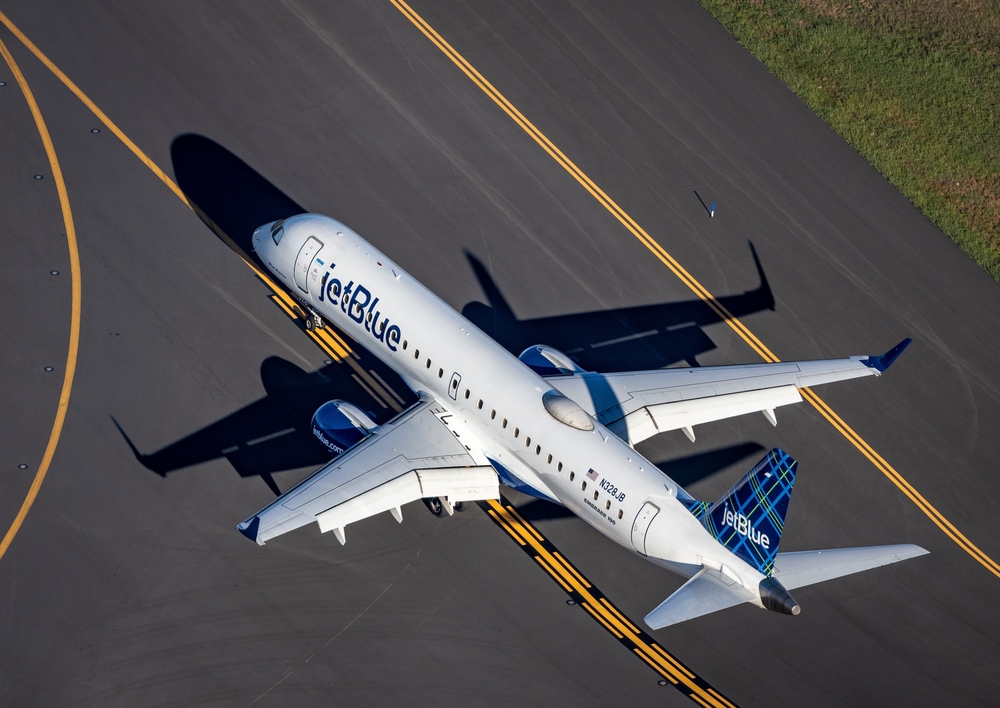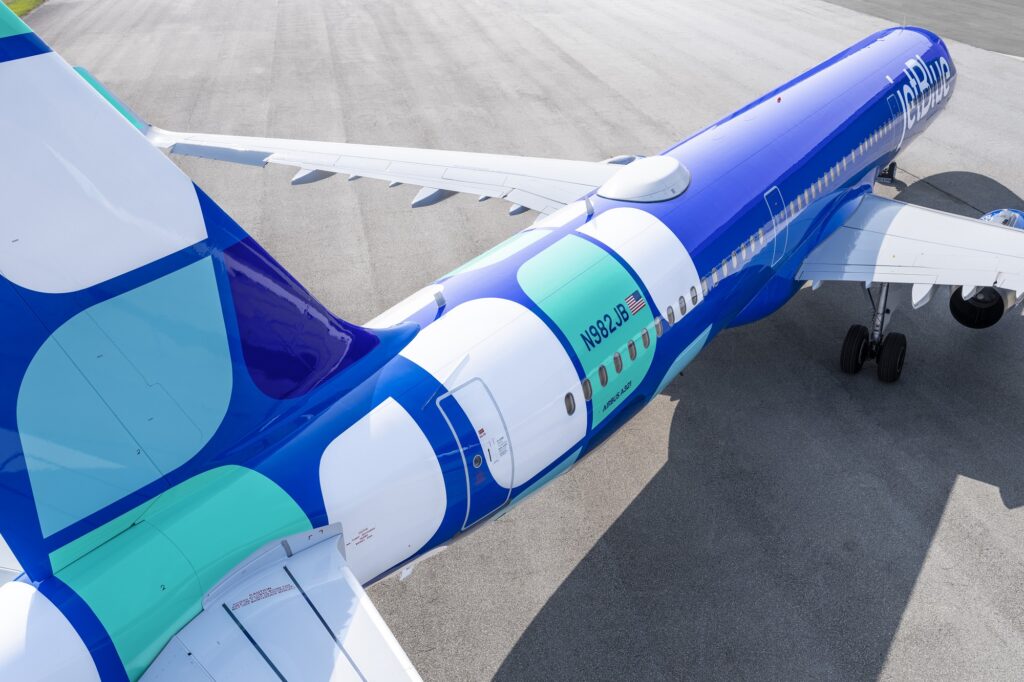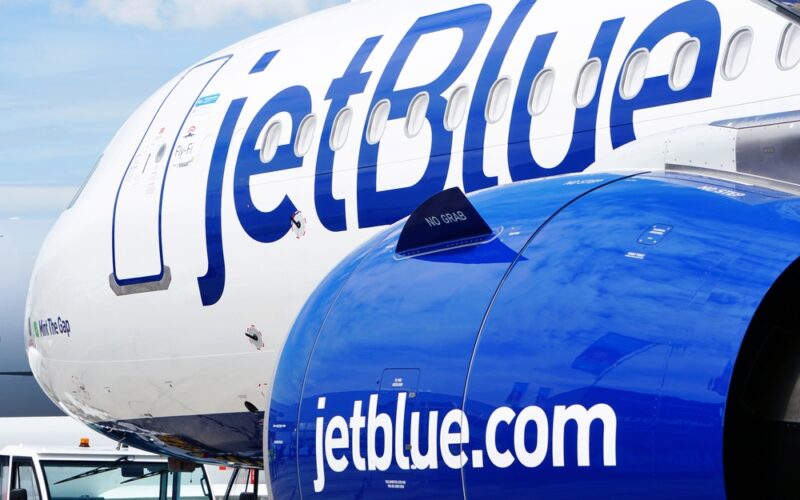New York-based JetBlue has announced its results for the second quarter of 2024 92Q24) in a period that saw the airline struggle to maintain performance across several key metrics while the airline also unveiled plans to reconfigure its fleet in the coming years.
In terms of the numbers, the carrier’s net income for the period reached $25 million or $0.07 earnings per share. Excluding special items, adjusted net income for the period was $26 million or $0.08 earnings per share. Operating revenues reached $2.4 billion during the period, representing a drop of 6.9% year-over-year. Meanwhile, operating expenses reached $2.4 billion for the period, a decrease of 0.1% over the same period in 2023.
During 2Q24, overall capacity across its network decreased by 2.7% year-over-year, as the carrier struggled with aircraft groundings due to engine inspection issues. Operating expenses per available seat mile (‘CASM’) for the period increased 2.6% year-over-year.
“We closed the first half of 2024 with meaningful year-over-year improvements in our operation and exceeded our second quarter guidance through strong execution, early evidence the changes we are implementing as part of our refocused strategy are yielding positive benefits,” said Joanna Geraghty, JetBlue’s Chief Executive Officer.
“Today, and as the year progresses, we are excited to share more details about JetForward, our strategic framework to return JetBlue to sustained profitability, and the four priority moves aimed at driving significant value over the coming years,” continued.
“These include boosting reliability and doubling down on our commitment to caring service to improve satisfaction and drive cost savings; reinvesting in building the best leisure network on the East Coast, where we are positioned to win; enhancing our existing product offerings and loyalty perks to better deliver the elevated and differentiated experiences our customers want; and keeping our costs low so that we can continue to offer customers exceptional value in the sky as we build a secure financial future for JetBlue,” Geraghty added.

“In the second quarter, we continued to implement our JetForward strategy with the announcement of more significant network changes,” said Marty St. George, JetBlue’s President. “We are actively reinvesting in our core geographies in New York, New England, Florida, and Puerto Rico while exiting routes and BlueCities that don’t meet our financial hurdle rate. As we progress through the second half of the year, we’ll be announcing additional initiatives designed to further enhance our customer value proposition, close the gap in our product offering to our peers, and drive significant financial benefit.”
Fleet adjustments
In addition to the earnings news, the airline also revealed that it intends to phase out its remaining Embraer E190 jets from its fleet by the end of 2025, relying on larger aircraft (including incoming Airbus A220s) to return the airline to full profitability. JetBlue currently has 22 E190s still flying its services, although the airline plans to retire six of these aircraft by the end of 2024 and the remaining 15 to be gone by the end of 2025.

The E190 is currently the smallest aircraft in JetBlue’s fleet, carrying 100 passengers in a two-by-two configuration. The aircraft are gradually being replaced by larger more efficient Airbus A220s which are configured to accommodate 140 passengers, 40% higher than the Embraers being replaced.
Adding to the fleet adjustment plans and to assist the airline’s bottom line is the decision to defer the delivery of 44 A321neo aircraft beyond 2030 in a decision that will defer nearly $3 billion in expenses. The deferral has already been agreed with Airbus, stated the airline.
The delaying of these new aircraft stems from ongoing issues regarding maintenance and subsequent grounding issues affecting its A320neo family aircraft of which it currently operates 36 airplanes. The issue is the detailed inspection issues affecting their Pratt & Whitney engines meaning that JetBlue expects to have an average of 11 aircraft grounded at any given point throughout 2024. With more aircraft already committed to and entering service, this number is likely to increase with engineering support being stretched as a result.

“At this stage, we simply can’t afford to continue taking delivery of costly new aircraft that may need to be parked due to engine availability issues,” said the carrier’s Chief Financial Officer Ursula Hurley.
With the disruptive effect that the grounding of these aircraft is having on JetBlue’s operation, the company also revealed that it will extend the life of a number of its older A320 aircraft to maintain the schedule and accommodate the carrier’s modest growth plans.


